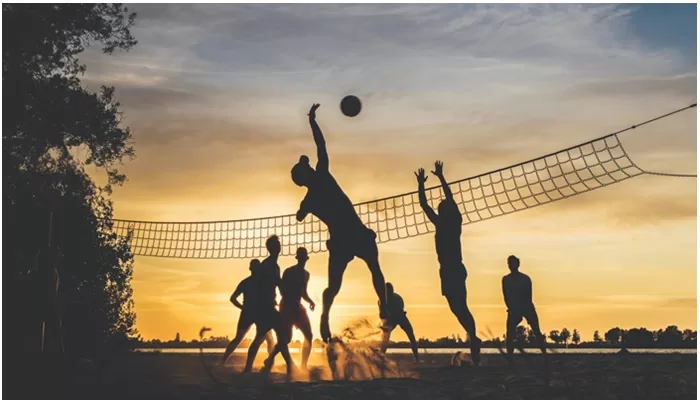Lifestyle
The 5 Most Popular Sports in Hungary

There are plenty of Sports in Hungary to play in Hungary, from basketball to handball and even canoeing. There are also a handful of amateur leagues, so you can practice your skills. The 5 most popular sports in Hungary include: Rugby union, Handball, Gymnastics, Water polo, and Soccer. Of course, this also means lots of people like to place bets as well. Have a look at onlinesportfogadás.com to find the best bookies in Hungary. But now without further ado, let’s dive right into the topic of the 5 most popular sports in Hungary!
Canoeing
Canoeing is one of the most popular sports in Hungary, and the country is a world leader in the sport. The national team is also among the best in the world, winning five gold medals and three silver. The men’s team, led by Tobias-Pascal Schultz, won the world university championship with a gold medal. The women’s team was a close second, with Belarus taking the bronze medal.
The sports in Hungary, as the country has plenty of flatwater surfaces. It also has a long history in the sport, winning 67 Olympic medals, including 17 gold. The country also tops the International Canoe Federation’s rankings.
Water polo
Water polo is an international sports in Hungary that originated in Hungary. It has a long history in Hungary and is an integral part of the Hungarian identity. In the United States, water polo is a relatively new sports in Hungary. The first official game was played in Hungary in 1987 and has since grown to professional level.
It is similar to soccer, with emphasis on speed and passing. The game is traditionally played in pools but can also be played in open water. The distance between goals is typically 20m to 30m for men and 25m for women. The length of the pool varies, but the width should be around 10 to 20 meters. The depth should be between 1.8m and 2m. The sides of the pool should also be marked with two and five-meter lines.
Hungary was once a Soviet satellite and was kept under a repressive regime. The Hungarian water polo team was training outside Budapest when the communists seized the country. As the Soviets closed in on Budapest, a Hungarian emigrant named Ervin Zador slipped out of the camp and went to visit his mother in Budapest. He then returned to the camp with news of the uprising. The team was later shipped to Czechoslovakia where it would compete in the 1956 Olympics.
Handball
Handball is a popular sports in Hungary and teams compete in international competitions. Teams are usually organised as clubs and are affiliated with federations on the national level. These federations organize tournaments and leagues. The International Handball Federation organises the Men’s and Women’s World Championships and junior world championships. According to the IHF, there are 166 member federations and around 19 million players. The game is played on a 40×20-metre court with a goal in each end. The goals are typically two metres high and three metres wide and must be securely bolted to the floor or the wall.
The game is played by two referees who are equally assigned to the teams. In most handball matches, the referees decide on the penalties by agreeing during a timeout. The referee’s decisions are final, and can only be appealed if a team does not comply with the rules.
Gymnastics
Gymnastics is one of the most popular Sports in Hungary, and the country is proud of its history and achievements. One of its most well-known athletes is Agnes Keleti, a five-time Olympic champion and former coach. She won ten medals at three Olympic Games, ranking third all-time among women athletes and fourth among gold medal winners.
She was also one of the most successful Jewish female athletes. Keleti began training at the age of four, and her first national title came at sixteen. She graduated from high school in 1939, but her university education was curtailed because of antisemitic quotas. Keleti was forced to work as an apprentice furrier to support herself while preparing for the 1940 Olympic Games, which were not held because of World War II.
Hungarian gymnasts are also known for their outstanding performances in international competitions. In the 1976 Olympics, Hungary’s women’s gymnastics team was a major force. Onodi was responsible for seven of Hungary’s eight highest scoring routines. She also averaged nearly nine points a routine, which was the second highest total among all gymnasts in the competition. She was also the top Hungarian in the All-Around finals, but her teammates were unable to keep up with her.
Football
Football is one of the most popular Sports in Hungary, and the nation is home to a number of world-class teams. The Hungarian Football Federation was formed in 1901, and currently organises a league and national team. Hungary’s men’s national football team made its competitive debut at the 1912 Summer Olympics, and since then it has won three Gold medals in Summer Olympic tournaments. However, the country has not yet won a World Cup or European Championship.
Despite the fact that football is the most popular sport in Hungary, handball and basketball are also popular. The Hungarian national basketball team was once one of the best in Europe, winning many medals and frequently qualifying for the Summer Olympics. But nowadays, the national basketball team isn’t quite as good as it used to be, and there are only a handful of Hungarians in the NBA.

























































